Are you considering resigning from your current job to return to a previous employer? Crafting the right resignation letter can make all the difference and help ease your transition. It's essential to express gratitude for your current role while clearly stating your intention to rejoin a familiar workplace. If you're looking for the perfect template to get started, keep reading for tips and a sample letter that will help you on your journey!
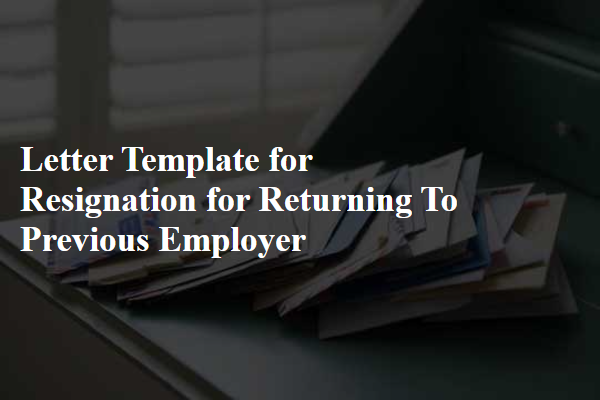
Polite and Professional Tone
Returning to a previous employer can provide a sense of familiarity and continuity, often promoting a smoother transition back into the workplace culture. In the professional realm, this situation may arise when an individual's career goals shift or personal circumstances change. The act of resigning is vital, allowing the employee to formally communicate the decision to their current employer, maintain professionalism, and uphold strong relationships within their network. Important elements to consider include expressing gratitude for the opportunities received, highlighting valuable experiences gained, and ensuring a clear timeline for the transition process. Maintaining a respectful tone throughout enhances the likelihood of leaving doors open for future collaboration.
Clear Statement of Resignation
Resigning from a current position requires a clear statement of intent. The resignation letter should indicate the last working day, typically allowing for a notice period per company policy, often two weeks. Mentioning the current position title provides clarity. Expressing gratitude acknowledges professional growth and positive experiences gained during employment. If relevant, stating the reason for leaving, such as returning to a previous employer, offers transparency. Maintaining professionalism ensures a respectful and positive exit, fostering potential future connections with the current organization.
Reason for Returning to Previous Employer
Returning to a previous employer often stems from various personal and professional motivations, such as a desire for a familiar work environment, alignment with company culture, or the pursuit of specific career growth opportunities. For instance, after a stint at Company B, an employee might find that the innovative projects at Company A, known for its progressive approach in the tech sector, align better with their career aspirations. The advantages of returning include re-establishing connections with former colleagues, reintegrating into a supportive team dynamic, and leveraging prior knowledge of internal processes. This decision may also be influenced by changes in the employee's life circumstances, such as relocation to the original job's area or a shift in personal priorities that make the previous employer a more appealing option. Additionally, recognition of personal growth gained from previous experiences can enhance the employee's contributions to the former workplace, benefiting both parties.
Gratitude for Current Opportunities
A resignation letter expresses gratitude towards current employers while indicating the intention to return to a previous job. The letter highlights appreciation for professional growth and support received, such as mentorship or skills development opportunities. It conveys respect for the current workplace environment and colleagues, emphasizing positive experiences during the tenure. The acknowledgment of the decision to pursue a previous opportunity should also mention the importance of the past role, aligning personal career goals with the organization's mission. The tone remains professional, ensuring a diplomatic and courteous farewell.
Offer Assistance During Transition
A professional resignation letter serves as a formal notification to an employer about an employee's decision to leave. Returning to a previous employer requires clear communication about the intent to resign. Offer assistance during the transition period to ensure continuity and minimize disruption. Including specific details, such as the last working day, reinforces commitment to an orderly transfer of responsibilities. Emphasizing gratitude for the opportunities provided enhances the professionalism of the communication. Maintain a respectful tone throughout to preserve relationships and potential future interactions in the professional landscape.
Letter Template For Resignation For Returning To Previous Employer Samples
Letter template of resignation for returning to previous employer after career development.
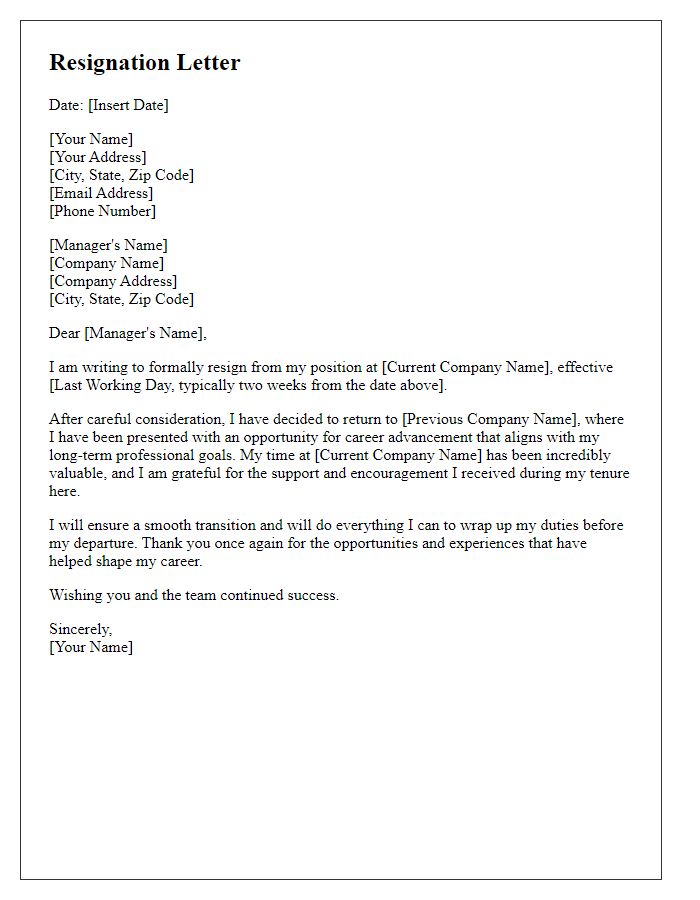
Letter template of resignation for returning to previous employer for personal reasons.
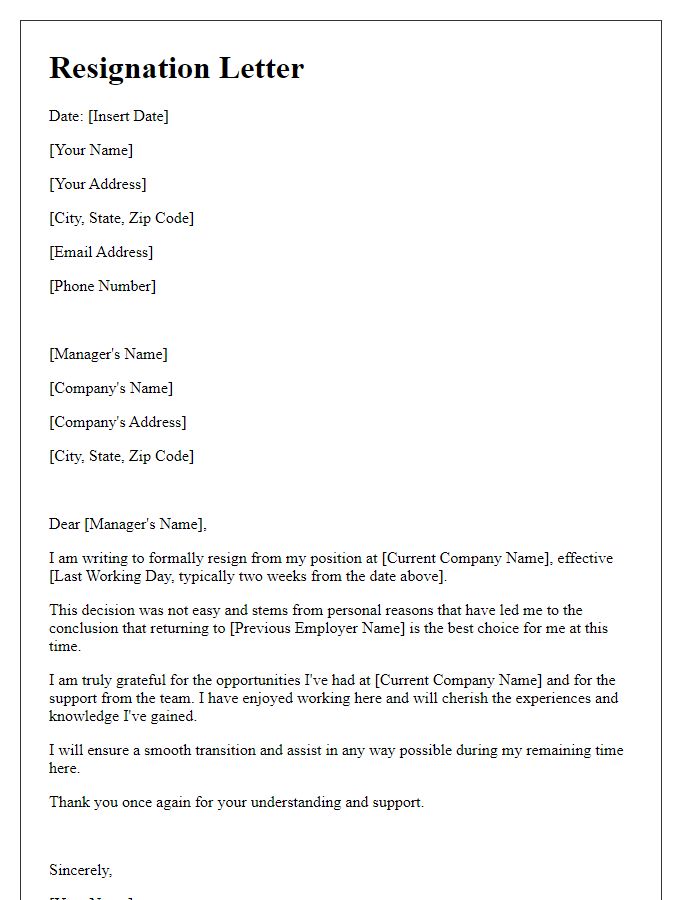
Letter template of resignation for returning to previous employer due to relocation.
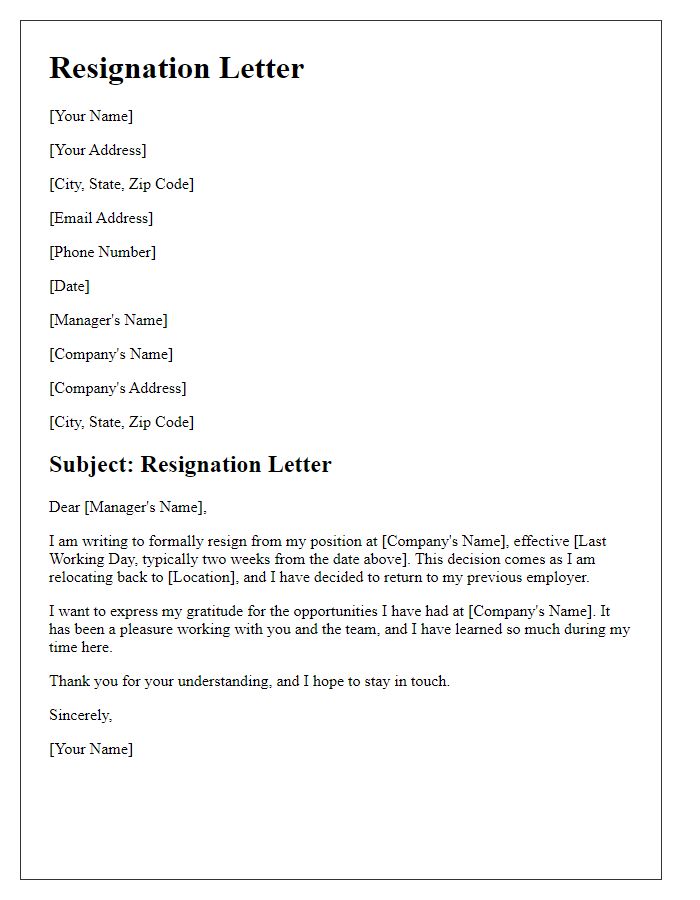
Letter template of resignation for returning to previous employer for better work-life balance.
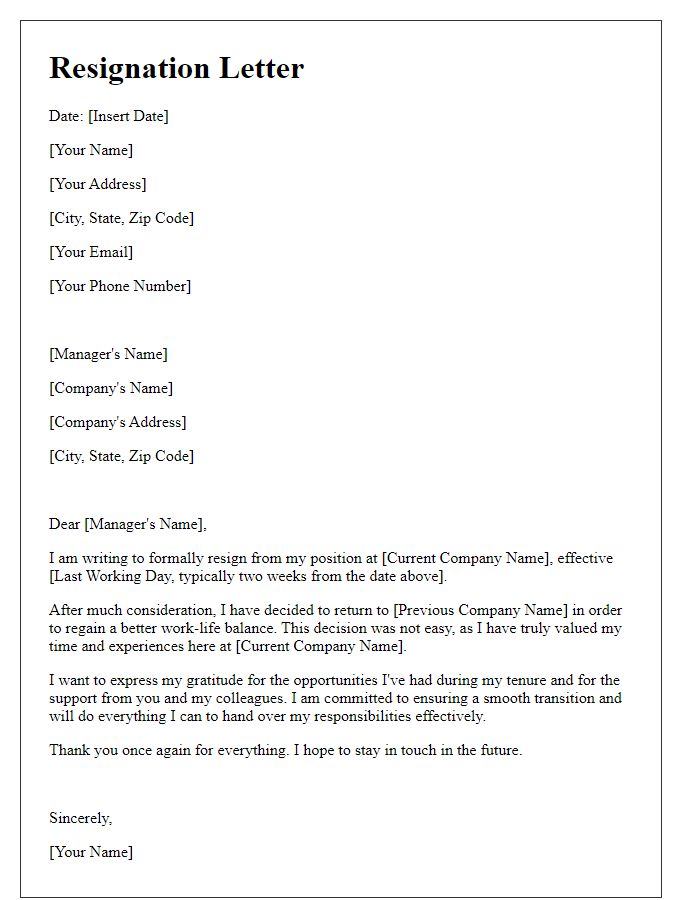
Letter template of resignation for returning to previous employer to pursue a new opportunity.
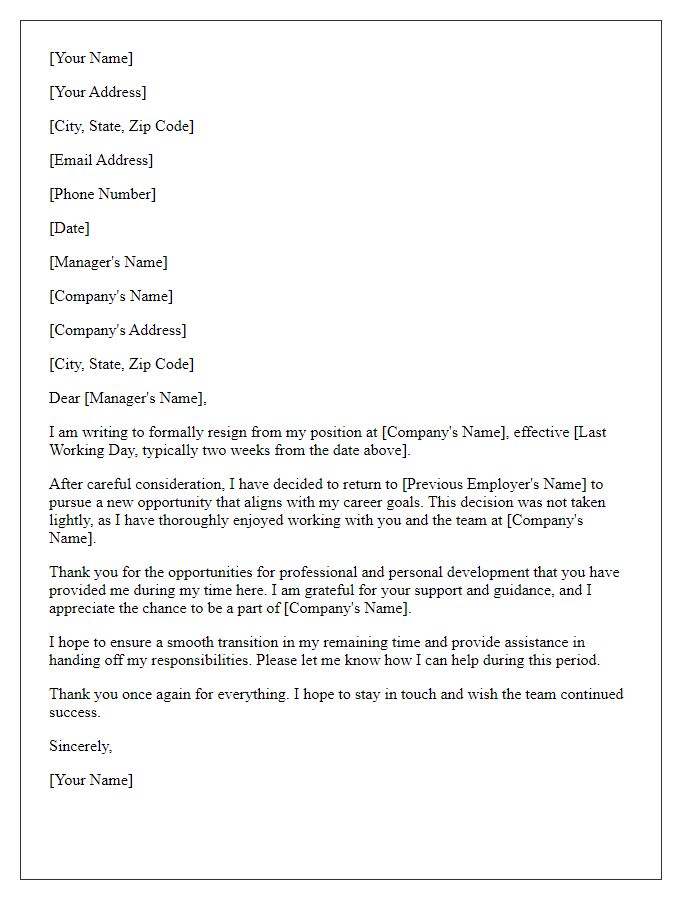
Letter template of resignation for returning to previous employer after gaining new skills.
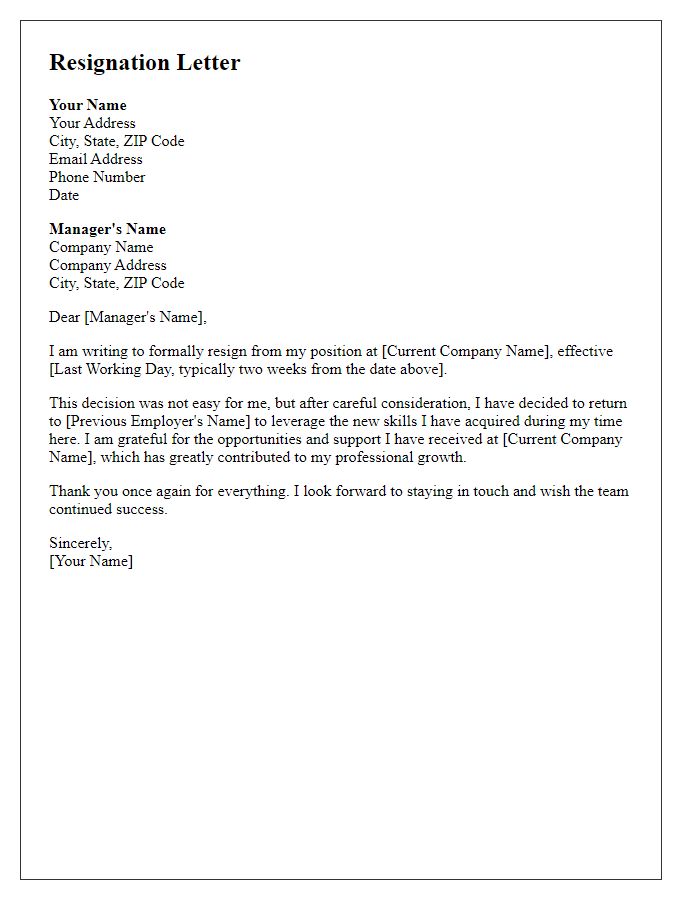
Letter template of resignation for returning to previous employer to advance career.
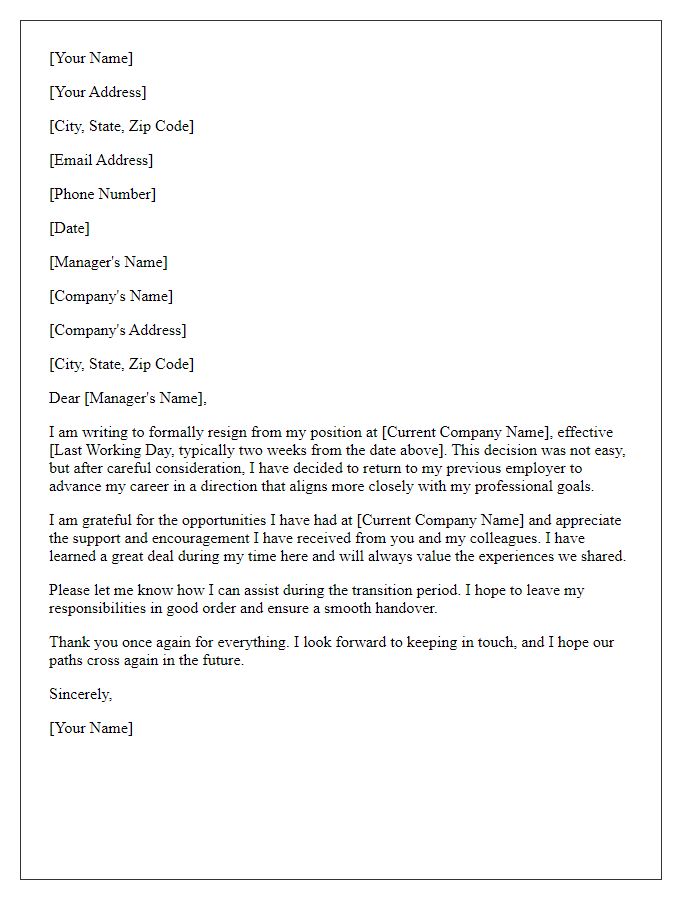
Letter template of resignation for returning to previous employer for project collaboration.
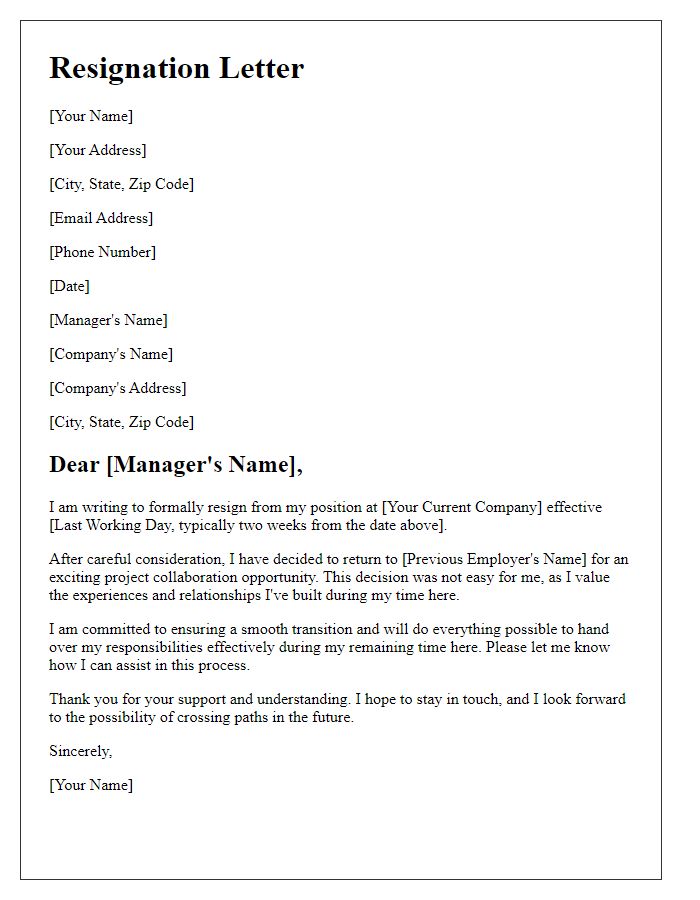
Letter template of resignation for returning to previous employer for a supportive work culture.
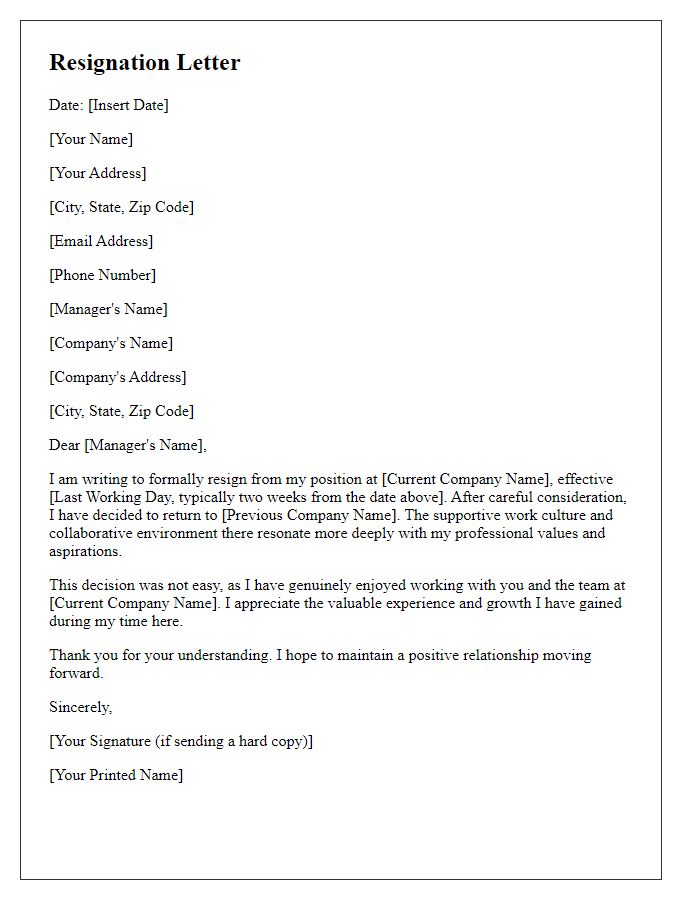

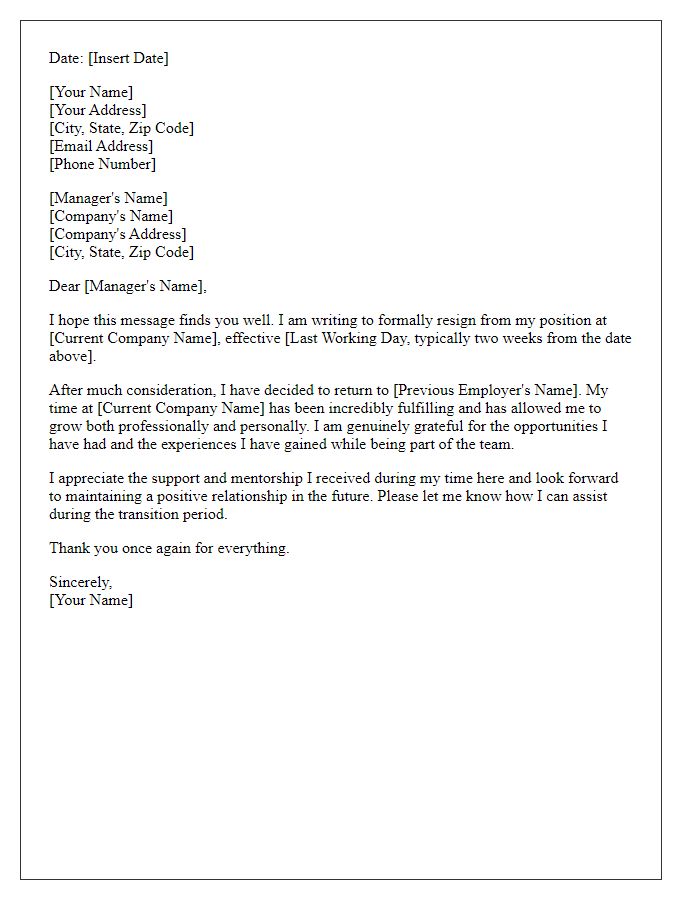


Comments